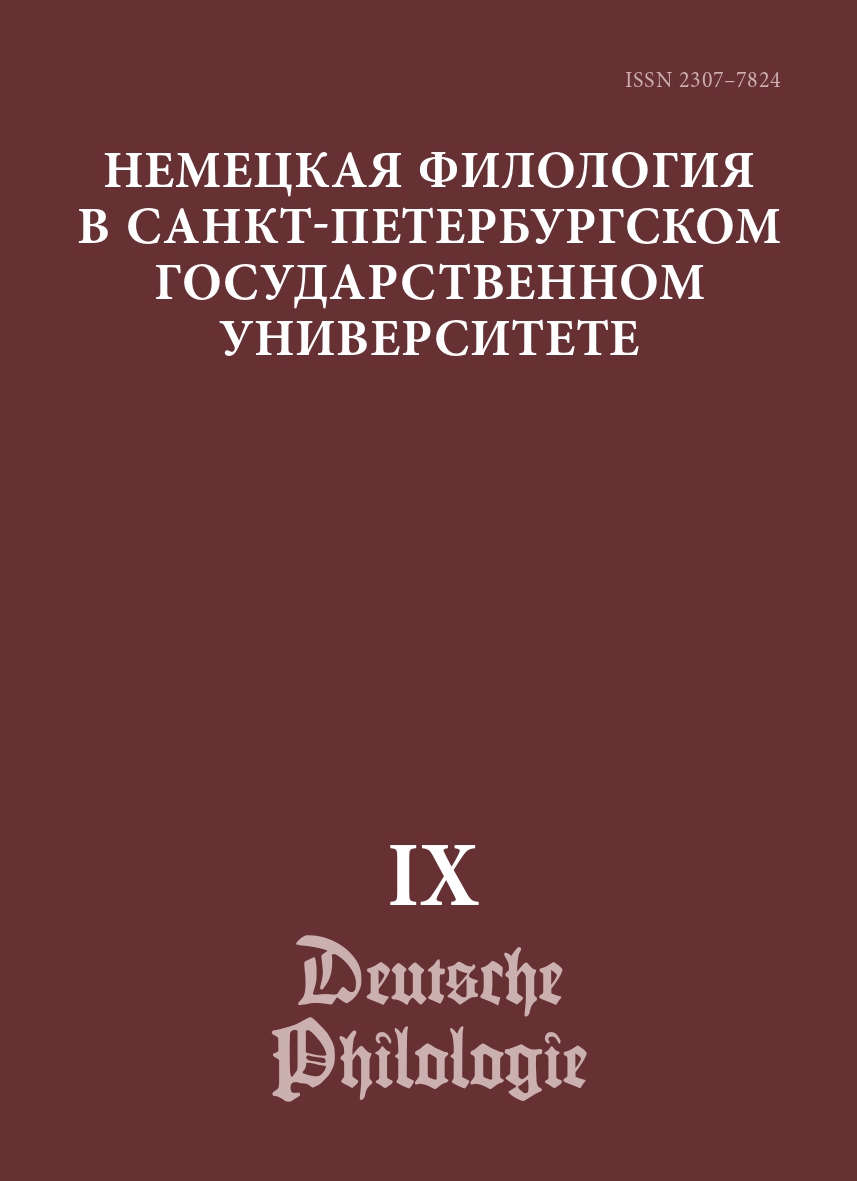SPEECH SIGNALS OF THE DISCURSIVE OPENNESS IN GERMAN LAUDATIO TEXTS
Abstract
The article offers an interpretation of compositional speech signals of discursive openness in the Laudatio text type, which has a fairly long history in European and German culture as written and oral realization of “praising speech” included into the discourse of Honoring and Awarding. The interpretation is based, first, on the approach to the text type under study as to one of genre and text forms of the epideictic speech known since the ancient rhetoric times. The compositional and meaningful core of this kind of speech is comprised by utterances containing direct or indirect ameliorative evaluation of the honored/awarded person and not so much communicating new information about this person as forming the readers’/audience’s positive attitude towards the person. Second, the modern methods of discourse analysis allow us to treat the Laudatio text as one realizing a specific “discursive practice”, namely, social practice of (institutional) honoring. The content and the form of the Laudatio is characterized by a combination of such “discursive dominants” as, on the one hand, conventional “speech etiquette” signals and, on the other hand, elocutionary means of the author’s eloquence and figurativeness which increase the emotional and expressive effect of the text. This combination has defined the two main lines of analyzing the way of formulation typical of the given text type. The “speech etiquette” signals considered in the article include the forms of addressing the audience and the laureate (the actual speech object) as well as the complex of means of enhancing the pragmatic activity of the laureate’s “subject position”. The public speaker (Laudator) also observes the “speech etiquette” by means of overshadowing the nominations and attributes which refer to the person of the speaker her-/himself. This effect is achieved, among all, by the following means: quoting the laureate’s real utterances in the forms of direct, uttered represented or indirect speech; references to her/his literary works; and third parties’ utterances which characterize the awarded person directly or indirectly.
Keywords:
text type, discursive practice, discursive dominants, ameliorative evaluation, speech etiquette, eloquence
Downloads
Downloads
Published
How to Cite
Issue
Section
License
Условия передачи авторских прав на статьи и рецензии, опубликованные в ежегодном периодическом издании «Немецкая филология» регулируются условиями Лицензионного Договора автора с Санкт-Петербургским государственным университетом. В соответствии с Лицензионным Договором опубликованные материалы находятся в открытом доступе, а авторам бесплатно предоставляется неограниченные возможности их распространения и самостоятельного архивирования.




